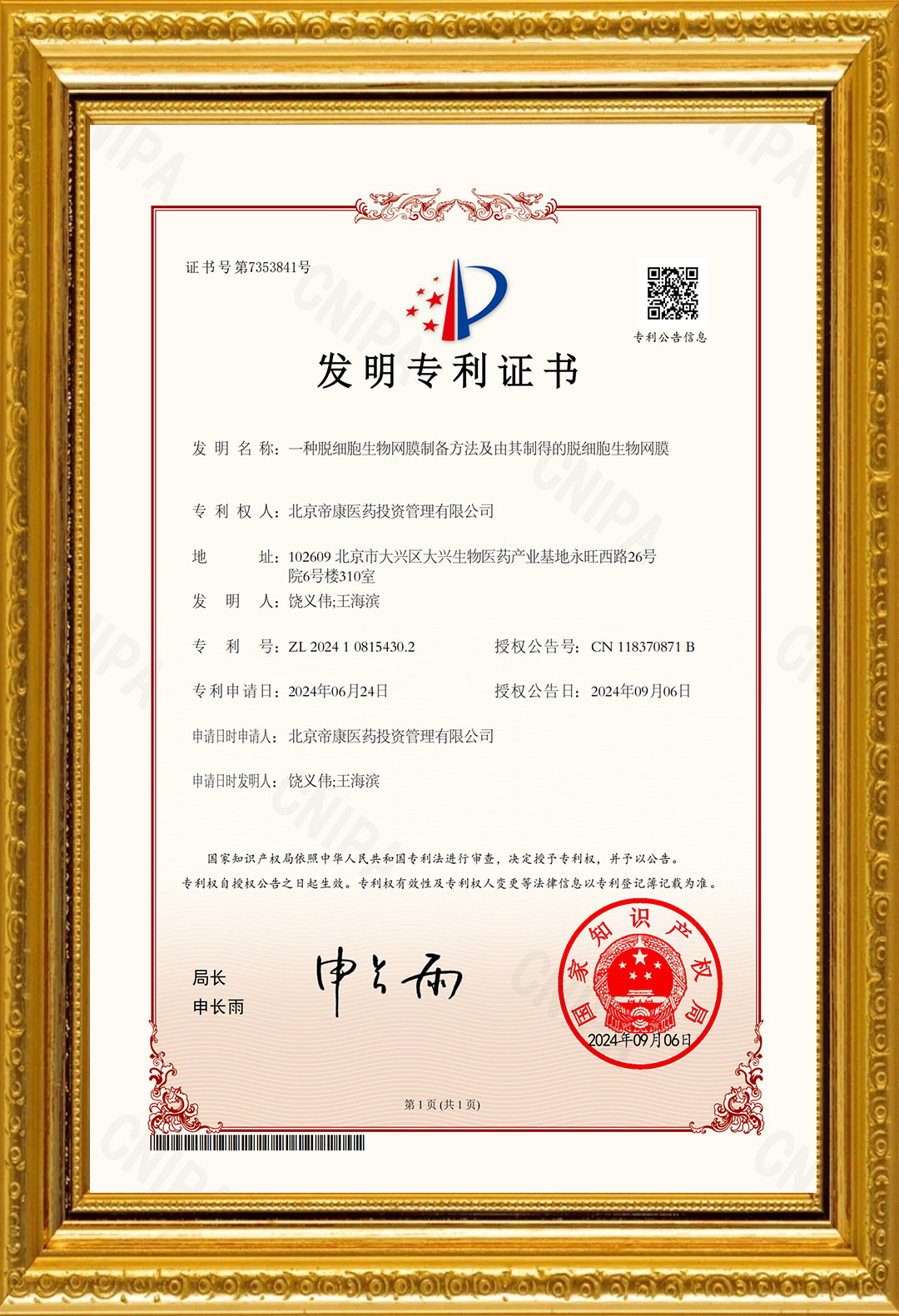
Introduction
Dikang Pharmaceutical's decellularized matrix raw material, d-ECM, had obtained invention patent authorization from the National Intellectual Property Administration of China and master file registration from the National Medical Products Administration.On September 6, 2024, the National Intellectual Property Administration approved a new invention patent for Beijing Dikang Pharmaceutical Investment Management Co., Ltd.'s d-ECM decellularized matrix raw material, with the patent titled "A Preparation Method for Decellularized Biological Mesh and the Decellularized Biological Mesh Prepared Therefrom" (Patent No.: ZL 2024 1 0815430.2).

Raw Material Has Passed Master File Registration

Previously, in the latest "Public Notice of Master File Registration Information" published by National Medical Products Administration's Center for Medical Device Evaluation, Beijing Dikang Pharmaceutical Investment Management Co., Ltd.'s decellularized matrix biomaterial had also passed master file registration. The raw material is based on the research and development outcomes of the national "13th Five-Year Plan" key research and development project, "Engineering Preparation Technology for Low-Immunogenicity Collagen and Silk Fibroin and Product Development" (SQ2017YFSF100202). The passage of master file registration marks an important milestone and provides a legally sourced raw material for the research and development and production of decellularized matrix-related products in the pharmaceutical industry.
Decellularized Matrix
Decellularized matrix (dECM) is a natural material obtained by removing cells, antigens, and other components from animal or human tissues using various decellularization techniques such as physical, chemical, and biological methods, while retaining the main components of ECM. Extracellular matrix (ECM) is the microenvironment in which cells survive and, together with cells, forms human tissues and organs. It consists of a complex three-dimensional network structure composed of various proteins and polysaccharides, providing stable signal transmission and structural support for tissues and organs. Due to its excellent repair and regenerative properties, decellularized matrix is considered a new generation of biomaterial suitable for regenerative medicine, playing an increasingly important role in tissue repair, organ transplantation, and regenerative medicine, and has great development potential.
